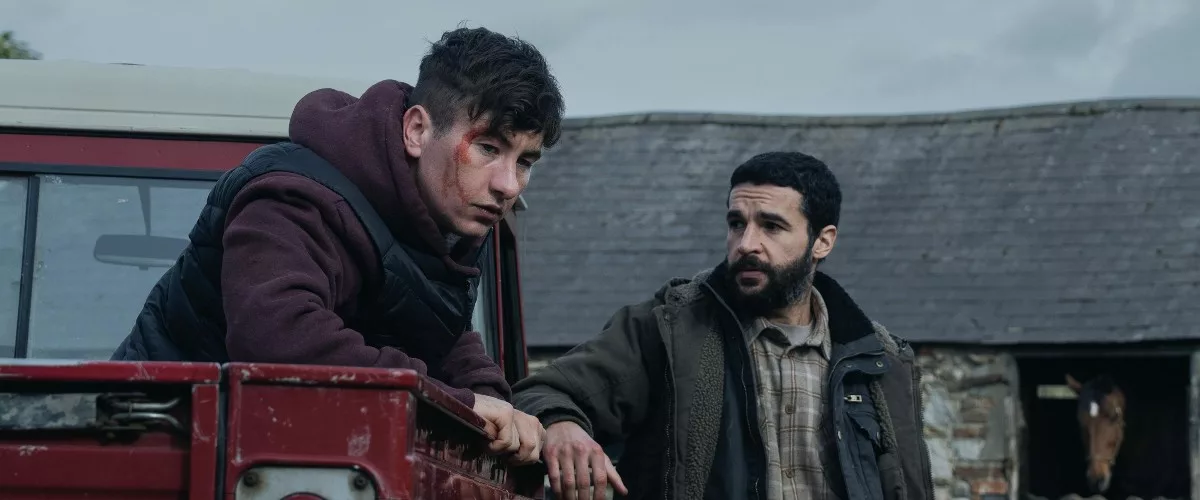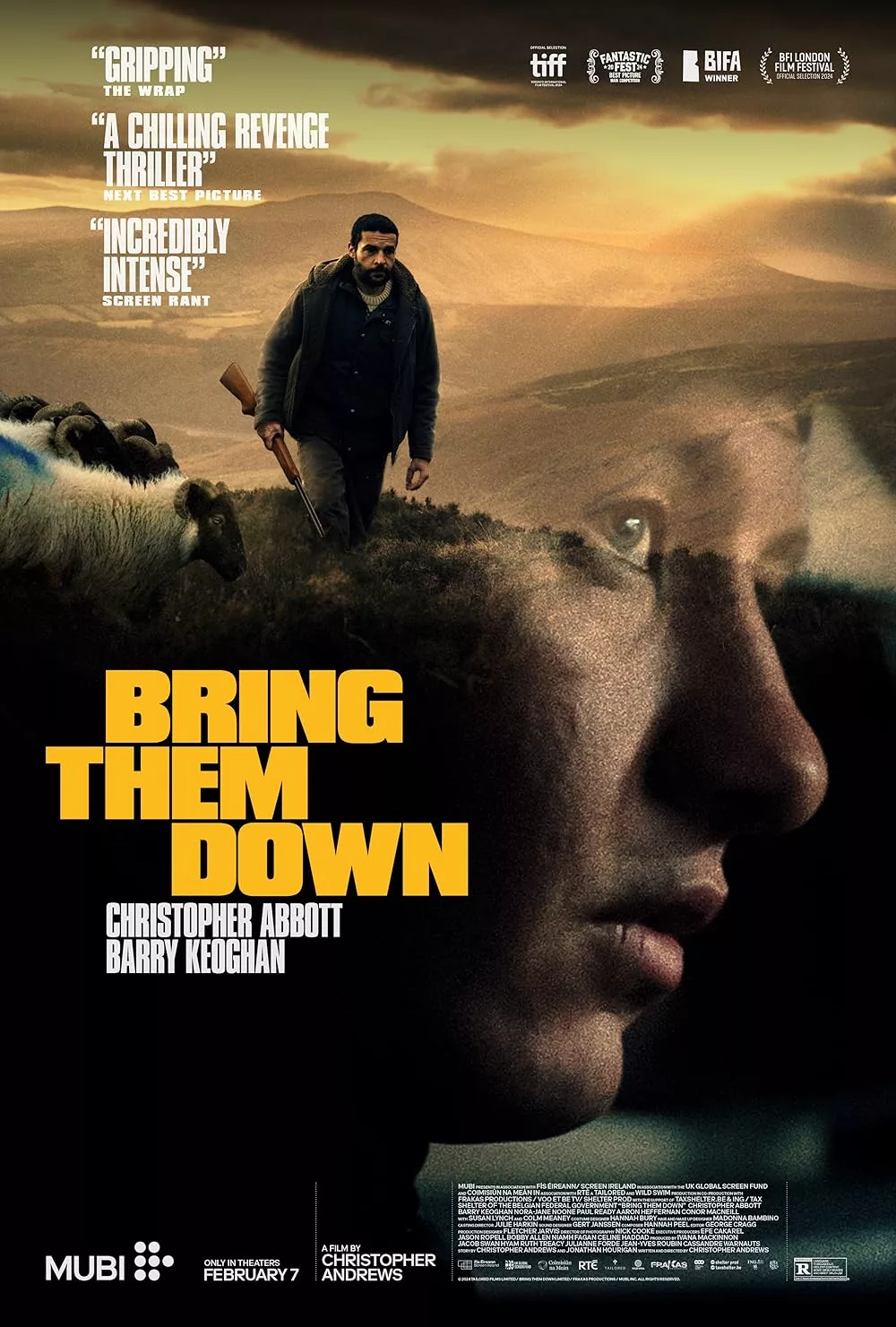“Bring Them Down” begins with flashback: on a winding road through a forest in West Ireland, a car drives too fast and crashes. The wreck leaves the driver unscathed but disfigures his girlfriend and kills his mother. The driver, now in his thirties, is sheep farmer Michael O’Shea, played by Christopher Abbott, who excels at playing quiet men who notice a lot but say little. After the accident, Michael’s girlfriend, Caroline (Nora-Jane Noon), ends up marrying a sheep farmer named Gary, whose family lives on a property nearby. Michael remains on the family sheep farm with his father, Ray (Colm Meaney, a powerhouse character actor who has somehow looked about 45 years old for three decades now). Ray is a proud, bitter, hot-tempered man whose default mode of communication is lashing out. The son bows to the father.
Michael still drives those winding roads each day. When he looks through his windshield, he must think about what happened. We certainly do. While Michael isn’t the sort of person who would analyze his own psychology, it’s clear that he’s looking for redemption for the colossal guilt he feels: a way to expiate his sin. The opportunity presents itself when Michael searches for a couple of missing rams; he’s told by Gary’s son Jack (Barry Keoghan) that they wandered onto the family property visibly sick and had to be put down. He then learns that the animals are alive with altered ownership markings and are being offered for sale. There’s only one way this story can go. “Bring me his f—-g head,” Michael’s father demands.
The memory of old tragedies and the threat of fresh ones loom over “Bring Them Down” like an overcast sky. Written and directed by first-time feature filmmaker Christopher Andrews, it’s a deliberate but tense story about a small, insular society—sheep ranchers in modern-day rural Ireland. It’s been described as a revenge movie, and it is. But it might be more precise to call it a feud movie. The local animosities detailed in Andrews’ script have old roots, and they’ve persisted even as times have changed, technology has evolved, and the local economy has mutated (Gary is developing his property for vacation homes, a move that the traditionalist Ray snarkily describes as “diversifying”).
You’ve seen a version of this movie before with different details. The basic story is Biblically ancient. The film’s intimate, savage violence—which erupts shockingly and is captured with a frenzied-seeming handheld camera—is Old Testament. But the questions raised are New. At what point should people be forgiven their sins? Under what circumstances is it morally right to pursue justice (none dare call it vengeance), and when is it preferable to stand down? Or at least de-escalate? At a certain point, it becomes clear that the men in this story are all lost (Caroline, too, in her way). They have no foundation except for their code, which translates into American in terms of a gunfighter’s mantra in a Western: doing what a man’s gotta do. (Ominous hip-hop is a constant on the soundtrack, blaring tinnily from car speakers, connecting one internally feuding subculture with another.)
For all its ferocious focus, this is a relatively quiet movie that embraces its smallness. It doesn’t come at us as a teacher with a lesson, but more like a hard man in a pub who’s drunk just enough to loosen up and be vulnerable, but not so much that he gets self-conscious and starts directing his misery outward and picking fights with other patrons to feel manly again. (Most of the men in the story, though, are the second kind of person. When Gary goes to Ray and asks permission to cut through his property because a bridge has been washed out, Ray denies it. Gary crashes through the gate, cursing the old man as he rumbles through the woods.)
Abbott is the film’s anchor. He manages the difficult feat of hiding or suppressing much of the character’s turmoil until Michael is ready to lash out at real and perceived enemies. Keoghan matches him, although at first the movie misleads us into assuming he’s been slotted into a supporting role. A time-shifting reorientation later in the film (reminiscent of the way flashbacks were used in 1940s and ’50s noir thrillers) puts a different frame around the young man’s mysteriously closed-off expressions; it suggests that the movie might go down another road rather than stick to the well-trod one. And yes, it spends a bit of time on an under-explored trail. But there’s a certain way things are done in places like this. There’s always the potential for a new wreck around the next bend. If none happens by accident, it’ll be willed into existence.




















